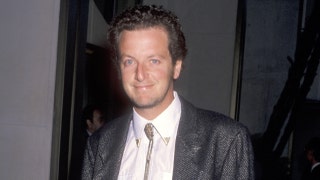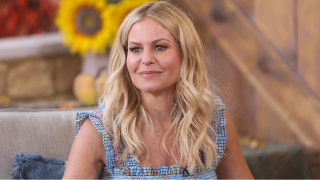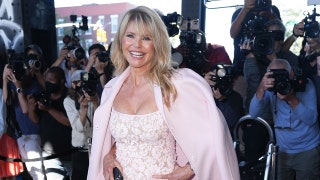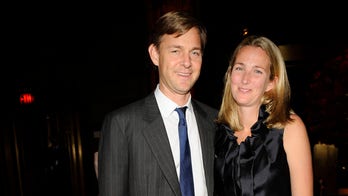As a child star in Hollywood in the 1950s and 60s, Barry Livingston appeared in everything from “My Three Sons” to “The Dick Van Dyke Show” to “The Lucy Show,” experiencing more than his share of ups and downs before he was even a teenager.
But one of Livingston's most striking memories was after he won a role in the 1958 movie “Rally 'Round the Flag, Boys!” playing the son of Paul Newman. It was his film debut, his big break: or so the then five-year-old thought.
“It was the very first job I'd ever had. Paul (Newman) was cool and he came to my defense when a director, who was a screamer and an old geezer ... was yelling at me," Livingston, who recently released the memoir “The Importance of Being Ernie,” told FOX411’s Pop Tarts column. "He didn't think I was following his direction in this scene where I just had to look at the television and my eyes were just ping-ponging around in my head because I wasn't wearing glasses at the time. Paul Newman was playing my dad and he just said, 'Take it easy, lay off the kid, you're being too hard on him.'”
But even Newman couldn't save Livingston from what happened next.
“I couldn't even keep my eyes still, they said my eyes were not looking at the TV, then they thought maybe I was having a seizure and rushed me to a hospital and diagnosed me with having astigmatism,” Livingston recalled. “I came back to the set maybe a day or two later with my glasses, and I was promptly fired by the producer, who said he did not think Paul Newman's son in this movie would be wearing glasses. That was my wonderful introduction into the sensitive world of Hollywood.”
Livingston credits his tough-as-nails mom for protecting him from the predator types that roamed Hollywood even back there.
“My mother was a nutty old girl; she was a stripper in the 40s. She wasn’t the type that hadn’t lived out in the world and in some crazy environments herself. She was well aware that there were predator people, it is such a hot-button today but it was taken for granted (back then),” Livingston explained. “She warned me about people, she had a good bulls**t meter about people who seemed to be wanting to get close because they were drawn by an ulterior motive. That’s what served me over the years.”
But there were some perks that came with fame – like peering into a limousine, having Elvis Presley stare back at you, and then invite you to go for a ride while watching “Popeye” on the limo’s swanky in-built television.
“It was amazing, he was away from all his handlers and I didn’t even know it was his limo until he just popped out,” Livingston, who was just nine at the time, said. “He was just in the mood to play with his new toy they have delivered to him, he saw I was a kid completely in awe of the television and let me drive around the studio block with him. He liked ‘Popeye’ too, which I thought was cool."
And although Livingston still managed to score lots of sought-after roles – specs and all – he eventually fell victim to the dark side when he was no longer wanted by the fickle industry.
“I had a lot of challenges to overcome – depression, drug use, the obstacles of re-inventing myself and my credibility. I could barely get an agent, or get in to see casting people. It is a strange town and you never really know why you’re hot and the next minute you’re not. I found myself no longer on the list of people called to read for roles in TV and film,” he said. “That period was sprinkled with a lot of pharmaceuticals and herbicides that I took…I never got to the point where it was an endless cycle, I never crashed my car or robbed and hurt anybody. I just got to the point where I realized I didn’t like how I felt in the morning. I didn’t like the person looking back at me in the mirror.”
Livingston has managed to bounce back in a big way in recent years – appearing in everything from “The Social Network” to “Mad Men.” But he hopes his book, filled with trials and tribulations, will serve as a word of warning to youngsters looking to enter the entertainment industry.
“People think that being famous, well it is a wonderful thing and it creates a lot of opportunity, but it also creates some issues in your life when that fame when it’s pulled away,” Livingston added. “It can be a hole in your life and that creates a problem… Lucky for me I married a good woman and raised a kid. It’s nice that it has turned around and I can have a career again.”
Danielle Jones-Wesley contributed to this report.














































